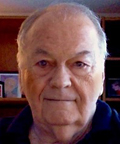The 2016 Scientific Achievement Award winners are listed below.
John J. Abel Award in Pharmacology
Jing Yang, PhD
 Dr. Jing Yang has been named the 2016 recipient of the John J. Abel Award in Pharmacology given by the American Society for Pharmacology and Experimental Therapeutics (ASPET).
Dr. Jing Yang has been named the 2016 recipient of the John J. Abel Award in Pharmacology given by the American Society for Pharmacology and Experimental Therapeutics (ASPET).
The Abel Award, presented annually, is named after the founder of ASPET. It was established in 1946 to stimulate fundamental research in pharmacology and experimental therapeutics by young investigators.
Nominated by Paul Insel from the University of California, San Diego (UCSD), Dr. Yang is being recognized for her significant research achievements and ground breaking investigations in the field of pharmacology.
Dr. Yang is currently an Associate Professor of Pharmacology and Pediatrics at UCSD. As a postdoctoral fellow, Dr. Yang discovered that the transcription factor Twist1 and the Epithelial-Mesenchymal Transition (EMT) program play essential roles in tumor metastasis (Yang et al, Cell, 2004). This study is considered ground-breaking by demonstrating that tumor cells reactivate the latent EMT morphogenesis program to acquire the ability to invade and metastasize.
Dr. Yang obtained her PhD in Molecular Cancer Biology from Duke University’s Graduate Program in Cell and Molecular Biology, Department of Pharmacology and Cancer Biology in 1999. She then became a Damon Runyon Cancer Research Foundation postdoctoral fellow with Dr. Robert Weinberg at the Whitehead Institute. Dr. Yang joined the Department of Pharmacology at UCSD as Assistant Professor in 2006 and was promoted to Associate Professor with tenure in 2012.
Dr. Yang’s major research achievements as an independent investigator brought forth recognition in resolving a lengthy controversy concerning EMT in cancer metastasis, as her lab used an inducible Twist1 mouse model to demonstrate a dynamic requirement for EMT in metastasis. She discovered that carcinoma cells undergo EMT to invade and disseminate from the primary tumor, but upon reaching distant sites, tumor cells need to revert to an epithelial state to form macrometastases (Tsai et al, Cancer Cell, 2012). Her lab further discovered a novel Twist1-G3BP2 mechanotransduction signaling pathway that senses physical forces exerted by extracellular matrix in the tumor microenvironment to generate biochemical and cellular responses that drive EMT and tumor metastasis (Wei et al, Nature Cell Biology, 2015). Dr. Yang also identified a novel function of Twist1 in metastasis by promoting invadopodia-mediated matrix degradation (Eckert et al, Cancer Cell, 2011). This study provided the in vivo evidence for an essential role of invadopodia in tumor metastasis and identified novel therapeutic targets to inhibit tumor invasion and metastasis.
In addition to her superb research efforts, Dr. Yang directed the ASPET-sponsored SURF program at USCD for several years, has been deeply involved in teaching cancer pharmacology to graduate and medical students and been a terrific mentor for graduate students and fellows.
ASPET will present Dr. Yang with the Abel Award on Saturday, April 2, 2016 at 6:00 pm at the Business Meeting and Awards Presentation at the ASPET Annual Meeting during Experimental Biology 2016 at the San Diego Convention Center in Room 16AB. She will deliver the Abel Lecture on Monday, April 4 from 8:30 am – 9:20 am in Room 16AB.
Julius Axelrod Award in Pharmacology
Paul A. Insel, MD
 Dr. Paul A. Insel has been named the 2016 recipient of the Julius Axelrod Award in Pharmacology by the American Society for Pharmacology and Experimental Therapeutics (ASPET).
Dr. Paul A. Insel has been named the 2016 recipient of the Julius Axelrod Award in Pharmacology by the American Society for Pharmacology and Experimental Therapeutics (ASPET).
The Axelrod Award was established in 1991 to honor the memory of the eminent American pharmacologist who shaped the fields of neuroscience, drug metabolism, and biochemistry and who served as a mentor for numerous eminent pharmacologists around the world. The Axelrod Award is presented for significant contributions to understanding the biochemical mechanisms underlying the pharmacological actions of drugs and for contributions to mentoring other pharmacologists.
Nominated by Dr. Joan Heller Brown, at the University of California-San Diego (UCSD), Dr. Insel is being recognized for his time honored and groundbreaking research contributions, combined with his superlative achievements as a mentor.
Dr. Insel received his MD from the University of Michigan and subsequent training in Internal Medicine at Harvard Medical Service, Boston City Hospital. He began research training/efforts at NIH at the NICHD Gerontology Research Center and NCI Laboratory of Theoretical Biology and at the University of California, San Francisco.
He is currently Vice-Chair/Distinguished Professor of Pharmacology and Distinguished Professor of Medicine at UCSD. Since 1989, he has been Director of the UCSD Medical Scientist Training Program and actively involved in the National Association of MD/PhD Programs, serving as its inaugural President. He is a member of the Advisory Panel on Research of the American Association of Medical Colleges. He holds a Doc. Hon. Causa from the University of Paris and is a Fellow, American Association for the Advancement of Science. Dr. Insel has served as Editor or Senior Editor of numerous scientific journals, including Molecular Pharmacology, Journal of Clinical Investigation, British Journal of Pharmacology, and the American Journal of Physiology-Cell Physiology. He is currently the co-Head of Faculty in Pharmacology and Drug Discovery for F1000Prime and Editor, Annual Review of Pharmacology and Toxicology.
Dr. Insel’s major research efforts have focused on studies of G-protein-coupled receptors (GPCRs), their expression, signaling mechanisms, regulation, functional effects and roles in disease.
In the great scope of achievements, Dr. Insel is an extraordinarily accomplished researcher in receptor pharmacology and signaling, who has made critical contributions to the field. As an outstanding educator and mentor, Dr. Insel has inspired numerous undergraduates, graduates, and postdoctoral students to pursue training and develop meaningful careers in pharmacology. His students are loyal and dedicated admirers of his achievements, and consistently recognize the value of the guidance he has provided.
ASPET will present Dr. Insel with the Axelrod Award on Saturday, April 2, 2016 at 6:00 pm at the Business Meeting and Awards Presentation at the ASPET Annual Meeting during Experimental Biology 2016 at the San Diego Convention Center in Room 16AB.
Dr. Insel will present the Axelrod Lecture at the 2017 ASPET Annual Meeting during Experimental Biology in Chicago, Illinois, April 22–26, 2017.
The 2016 Axelrod Lecture will be given by last year’s recipient, Dr. Jean Rossier from Neuroscience Paris Seine who will deliver a lecture titled “Therapies of Brain Diseases, Past, Present and Future” on Sunday, April 3, 2016 at 8:30 am in Room 16AB at the San Diego Convention Center.
Louis S. Goodman & Alfred Gilman Award in Receptor Pharmacology
Bryan L. Roth, MD, PhD
 Dr. Bryan L. Roth is the recipient of the 2016 Louis S. Goodman & Alfred Gilman Award in Receptor Pharmacology by the American Society for Pharmacology and Experimental Therapeutics (ASPET).
Dr. Bryan L. Roth is the recipient of the 2016 Louis S. Goodman & Alfred Gilman Award in Receptor Pharmacology by the American Society for Pharmacology and Experimental Therapeutics (ASPET).
This biennial award was established in 1980 to recognize and stimulate outstanding research in the pharmacology of biological receptors. Such research is the foundation for a better understanding of the mechanisms of biological processes and potentially provides the basis for the discovery of drugs useful in the treatment of diseases.
Dr. Roth was nominated by Henrik Dohlman and Gary Johnson from the University of North Carolina, Jeffrey Benovic from Thomas Jefferson University, and Marc Caron from Duke University.
Dr. Roth is the Michael Hooker Distinguished Professor of Protein Therapeutics and Translational Proteomics for the Department of Pharmacology at the University of North Carolina, Chapel Hill. He is being recognized for his compelling contributions in the field of receptor pharmacology.
Dr. Roth received his MD and PhD at St. Louis University, and additional training at NIH, where he began his investigations of the molecular pharmacology of opioid receptors. After a Residency and Fellowship in Psychiatry at Stanford University he joined the faculty at Case Western Reserve University, and in 2006 relocated to the University of North Carolina. During this time he has amassed an impressive CV, with nearly 40 patents, 400 publications — including 13 in Nature or Science — and 30,000 citations to date.
Dr. Roth is recognized for at least three distinct, landmark contributions in receptor pharmacology. First, in a 2000 paper and a follow up 2007 paper in New England Journal of Medicine, he reported the mechanism underlying the valvulopathic side effects of several clinically-approved drugs, including the blockbuster obesity drug fenfluoramine (a component of fen-phen, since withdrawn). Second, in a 2002 paper, he identified the kappa-opioid receptor as the molecular target for salvinorin A, a widely abused hallucinogen. In a 2012 Nature paper, with long time collaborator Ray Stevens, he described the first crystal structure determination of the receptor. Third, over the last few years he and his colleagues have developed a chemogenetic platform called DREADD (Designer Receptors Exclusively Activated by Designer Drugs). This technology allows selective, dose-dependent, reversible pharmacological manipulation of any cell containing an engineered G protein coupled receptor. This technology has proven particularly useful for experimental manipulation of CNS activity, and has led to new insights relating neurotransmitters, neuronal signaling and behavior. Thomas Insel, Director of NIMH, has stated that DREADDs were one of the most important breakthrough technologies for the NIH brain initiative.
ASPET will present Dr. Roth with the Goodman & Gilman Award on Saturday, April 2, 2016 at 6:00 pm at the Business Meeting and Awards Presentation at the ASPET Annual Meeting during Experimental Biology 2016 at the San Diego Convention Center in Room 16AB. He will deliver the Goodman & Gilman Lecture titled “Towards an Atomic-level Understanding of Psychoactive Drug Actions” on Sunday, April 3 at 2:00 pm in Room 16AB.
Pharmacia-ASPET Award for Experimental Therapeutics
Csaba Szabo, MD, PhD
 Dr. Csaba Szabo has been named the recipient of the 2016 Pharmacia-ASPET Award for Experimental Therapeutics by the American Society for Pharmacology and Experimental Therapeutics (ASPET).
Dr. Csaba Szabo has been named the recipient of the 2016 Pharmacia-ASPET Award for Experimental Therapeutics by the American Society for Pharmacology and Experimental Therapeutics (ASPET).
The Pharmacia-ASPET Award recognizes and stimulates outstanding research in pharmacology and experimental therapeutics, basic laboratory or clinical research that has had, or potentially will have, a major impact on the pharmacological treatment of disease.
Nominated by Dr. Andreas Papapetropoulos, from the University of Athens School of Health Sciences, Athens, Greece, Dr. Szabo is highly regarded as a world renowned expert in the fields of oxidative and nitrosative stress, gaseous transmitters, cell death, cell dysfunction, cardiovascular, and inflammatory mechanisms. Over the last decade, his work significantly advanced our understanding of the physiological and pathological roles and translational potential of hydrogen sulfide, a novel endogenous gasotransmitter signaling molecule.
Dr. Szabo is a Professor of Anesthesiology at the University of Texas Medical Branch. Publishing over 500 original research articles, he was listed by the European Journal of Clinical Investigation as in the top 400 of highly influential biomedical scientists in the world. He has been continuously funded by the National Institutes of Health since 1995. In his current position, Dr. Szabo leads a multidisciplinary team of investigators with expertise in molecular biology, cell biology, pharmacology, physiology, pathophysiology, medicinal chemistry and translational science.
Along with the Pharmacia-ASPET Award for Experimental Therapeutics, Dr. Szabo has received numerous other awards, including the Novartis Award of the British Pharmacological Society, the Dennis Gabor Innovation Award, and the Texas Star Award. He has served and currently serves on the Editorial Board of numerous leading journals, including the British Journal of Pharmacology, the Journal of Pharmacology and Experimental Therapeutics, Shock, and Molecular Medicine. Dr. Szabo is also an Elected Fellow of the British Pharmacological Society and an Elected Member of the American Society for Clinical Investigation.
At this year’s ASPET Annual Meeting at Experimental Biology, Dr. Szabo will be giving a talk on the modulation of H2S as an anti-cancer strategy during the symposium titled “The Biology and Translational Potential of Hydrogen Sulfide: One Person's Trash Is Another Person's Treasure” on Wednesday, April 6, 2016 at 3:00 pm in Room 16B of the San Diego Convention Center.
ASPET will present Dr. Szabo with the Pharmacia-ASPET Award on Saturday, April 2, 2016 at 6:00 pm at the Business Meeting and Awards Presentation at the ASPET Annual Meeting during Experimental Biology 2016 at the San Diego Convention Center in Room 16AB.
Robert R. Ruffolo Career Achievement Award in Pharmacology
William A. Catterall, PhD
 Dr. William A. Catterall has been named the 2016 recipient of the Robert R. Ruffolo Career Achievement Award in Pharmacology by the American Society for Pharmacology and Experimental Therapeutics (ASPET).
Dr. William A. Catterall has been named the 2016 recipient of the Robert R. Ruffolo Career Achievement Award in Pharmacology by the American Society for Pharmacology and Experimental Therapeutics (ASPET).
The award was established in 2011 in recognition of the contributions made to drug discovery and development by Dr. Ruffolo. The award recognizes the scientific achievements of scientists who are at the height of their careers and who have made significant contributions to any area of pharmacology.
Nominated by Dr. John Scott, an Investigator of the Howard Hughes Medical Institute and Professor of Pharmacology at the University of Washington, Dr. Catterall is being recognized for his outstanding research and for his exceptional contributions as an academic leader in pharmacology throughout the world.
Dr. Catterall received his BA in Chemistry from Brown University 1968, PhD in Physiological Chemistry from Johns Hopkins 1972, and postdoctoral training in neurobiology and molecular pharmacology as a Muscular Dystrophy Association Fellow with Dr. Marshall Nirenberg at the National Institutes of Health from 1972 to 1974. Following three years as a staff scientist at NIH, he joined the University of Washington in 1977 as Associate Professor of Pharmacology, became Professor in 1981, and Chair in 1984. He completes his 32-year tenure as Chair of Pharmacology in June, 2016.
Dr. Catterall is the leading investigator of the structure, function, and molecular pharmacology of voltage-gated sodium and calcium channels. He discovered the sodium and calcium channel proteins, and his work shifted the paradigm in ion channel research from a focus on measurement of ionic currents to analysis of the ion channel proteins and their genes.
As Chair of Pharmacology, Dr. Catterall has led an internationally recognized research and educational program, ranked 7th worldwide by US News & World Report in 2014. He has served as Editor of Molecular Pharmacology, a longstanding member of the ASPET Board of Publication Trustees, a Founding Member of the ASPET Division of Molecular Pharmacology, the Founding Editor of IUPHAR’s Ion Channel Compendium and Ion Channel Database, and is currently the co-Head of Faculty in Pharmacology and Drug Discovery for F1000Prime.
Dr. Catterall has been the most highly cited ion channel researcher from 2004 to 2014 as ranked by ion channels.org. He is a member the National Academy of Science, the National Academy of Medicine, and the Royal Society of London, UK.
ASPET will present Dr. Catterall with the Ruffolo Award on Saturday, April 2, 2016 at 6:00 pm at the Business Meeting and Awards Presentation at the ASPET Annual Meeting during Experimental Biology 2016 at the San Diego Convention Center in Room 16AB.
Bernard B. Brodie Award in Drug Metabolism
Masahiko Negishi, PhD
 Dr. Masahiko Negishi has been named the recipient of the 2016 Bernard B. Brodie Award in Drug Metabolism by the American Society for Pharmacology and Experimental Therapeutics (ASPET).
Dr. Masahiko Negishi has been named the recipient of the 2016 Bernard B. Brodie Award in Drug Metabolism by the American Society for Pharmacology and Experimental Therapeutics (ASPET).
The Brodie Award has been established to honor the fundamental contributions of Bernard B. Brodie in the field of drug metabolism and disposition. The award is presented biennially to recognize outstanding original research contributions in drug metabolism and disposition, particularly those having a major impact on future research in the field.
Dr. Negishi was selected for this honor in recognition of his landmark contributions to elucidation of the molecular mechanism of induction of cytochromes P450 by phenobarbital. He has been described as a brilliant scientist with an outstanding record of sustained research excellence and noted as one of the most important investigators in the area of drug metabolism over the last fifty years.
Dr. Negishi received his Doctorate in Science in Biochemistry from the Institute of Protein Research at Osaka University in 1972 and worked as an assistant professor at Kansai Medical School for 4 years in Japan. He carried out postdoctoral training in the Department of Cell Biology at New York University and National Institute of Child Health and Human Development from 1976 to 1983.
Since 1983, he has been a Principle Investigator and head of the Pharmacogenetics section in Reproductive and Developmental Biology Laboratory at National Institute of Environmental Health Sciences, NIH. His laboratory is responsible for two major discoveries in the structure-activity relationship of drug-metabolizing enzymes and the regulation mechanisms of drug-induced gene expression. His laboratory has trained nearly 100 postdocs and students, many of whom have become professors and institute directors.
He was selected to be a member of the Senior Biomedical Research Service at NIH in 2000 and received the 2002 North America Scientific Achievement Award from the International Society for Study of Xenobiotics, Honorary Doctor Degree from University of Kuopio, Finland in 2005, and was made a Fellow, Japanese Society of Study of Xenobiotics in 2012.
ASPET will present Dr. Negishi with the Brodie Award on Saturday, April 2, 2016 at 6:00 pm at the Business Meeting and Awards Presentation at the ASPET Annual Meeting during Experimental Biology 2016 at the San Diego Convention Center in Room 16AB. He will deliver the Bernard B. Brodie Award in Drug Metabolism Lecture on Monday, April 4 at 2:00 pm in Room 15A.
P.B. Dews Lifetime Achievement Award for Research in Behavioral Pharmacology
Travis Thompson, PhD and Roy W. Pickens, PhD

 The American Society for Pharmacology and Experimental Therapeutics (ASPET) is pleased to announce that the 2016 P.B. Dews Lifetime Achievement Award for Research in Behavioral Pharmacology is being awarded to Drs. Travis Thompson and Roy W. Pickens.
The American Society for Pharmacology and Experimental Therapeutics (ASPET) is pleased to announce that the 2016 P.B. Dews Lifetime Achievement Award for Research in Behavioral Pharmacology is being awarded to Drs. Travis Thompson and Roy W. Pickens.
The ASPET Division for Behavioral Pharmacology sponsors the Dews Award to recognize outstanding lifetime achievements in research, teaching, and professional service in the field of Behavioral Pharmacology and to honor Peter Dews for his seminal contributions to the development of behavioral pharmacology as a discipline.
Nominated by Michael Nader from Wake Forest School of Medicine, Drs. Thompson and Pickens were selected because of their individual and paramount contributions to the field of behavioral pharmacology. In consideration of the groundwork the two scientists did jointly and how innovative and significant their contributions were to the field, Dr. Nader believed it would be most deserving for them to receive the Dews award together.
Dr. Thompson is a professor in the department of educational psychology at the University of Minnesota. Dr. Pickens is retired but most recently held positions at Virginia Commonwealth University as the special assistant to the vice president for research and as a professor in the department of psychiatry.
Dr. Thompson received his PhD in Experimental Psychology from the University of Minnesota under the mentorship of Gordon Heistad and Kenneth MacCorquodale and his post-doctoral training at the University of Maryland under the mentorship of Joseph Brady. At the University of Minnesota, he has mentored close to 50 PhD students. Dr. Thompson has written several books, including the first textbook on Behavioral Pharmacology (1968), and has edited multiple volumes related to behavior and pharmacology including a seven-volume series “Advances in Behavioral Pharmacology”. In 1987 he received the NIDA Award for Outstanding Contribution to the National Drug Abuse Program for Training in Behavioral Pharmacology.
Dr. Pickens received his PhD in Psychology from the University of Mississippi under the mentorship of William F. Crowder and conducted his post-doctoral research at the University of Minnesota under the mentorship of Gordon Heistad and Fred Shideman. He joined the faculty at the University of Minnesota in 1966 and moved up the ranks to full professor in 1973. Dr. Pickens has been Director of the Division of Clinical Research at NIDA, Associate Director for AIDS, past-Director of the NIDA-Intramural Research Program, Professor of Psychiatry at Medical College of Virginia. He has mentored many pre- and post-doctoral fellows over his career.
Drs. Thompson and Pickens are recognized pioneers in the study of intravenous drug self-administration and for their later work in clinical settings.
ASPET will present the Dews Award on Saturday, April 2, 2016 at 6:00 pm at the Business Meeting and Awards Presentation at the ASPET Annual Meeting at Experimental Biology 2016 at the San Diego Convention Center in Room 16AB. Dr. Thompson will deliver the P.B. Dews Lecture titled “Behavioral Mechanisms of Drug Action: Peter Dew’s Legacy,” on Monday, April 4 at 2:00 pm in Room 15B.
Paul M. Vanhoutte Distinguished Lectureship in Vascular Pharmacology
Mark T. Nelson, PhD
 Dr. Mark T. Nelson has been named the recipient of the 2016 Paul M. Vanhoutte Lectureship in Vascular Pharmacology by the American Society for Pharmacology and Experimental Therapeutics (ASPET).
Dr. Mark T. Nelson has been named the recipient of the 2016 Paul M. Vanhoutte Lectureship in Vascular Pharmacology by the American Society for Pharmacology and Experimental Therapeutics (ASPET).
This biennial award was established in 2008 to honor Dr. Vanhoutte’s lifelong scientific contributions to our better understanding and appreciation of the importance of endothelial cells and vascular smooth muscle function in health and disease and for his mentoring of countless prominent endothelial and vascular biologists and pharmacologists.
Dr. Nelson was nominated by both Joseph Brayden from the University of Vermont and Swapnil Sonkusare from the University of Virginia. Dr. Nelson is being recognized for his pioneering research in vascular pharmacology and for his expansive and instrumental discoveries and teachings.
Dr. Nelson is a University Distinguished Professor and Chair of the Department of Pharmacology in the College of Medicine at the University of Vermont. He received his BA, with honors, in Mathematics and Biology from Tufts University and his PhD in Neural Sciences from Washington University. His work has been supported primarily by the National Institutes of Health, the National Science Foundation and the American Heart Association.
He is a current member of the Vermont Academy of Sciences & Engineering and an ad hoc member of the NIH Pharmacology Study Section. He has served as Councilor of the Biophysical Society Council, was awarded an Alexander von Humboldt-Stiftung Fellowship while at the Universität Konstanz (1981), an American Heart Association Fellowship while at the University of Maryland (1980), and a National Science Foundation Summer Fellowship while at Swarthmore College (1974). He has been named a University Scholar at the University of Vermont (1996), an Established Investigator of the American Heart Association (1985), and was an Honorable Mention Awardee from the American Heart Association for the Louis N. Katz Research Prize for Young Investigators (1982). Dr. Nelson has lectured and published widely, served as a consultant to several corporations, and has a particular research interest in the properties and roles of ion channels in smooth muscle function.
Dr. Nelson will present the Paul M. Vanhoutte Distinguished Lecture in Vascular Pharmacology during the ASPET Annual Meeting at Experimental Biology 2016 in San Diego, California. The lecture will take place on Tuesday, April 5, 2016 from 4:30-5:30 pm in Room 16A at the San Diego Convention Center. The award will also be presented at that time.